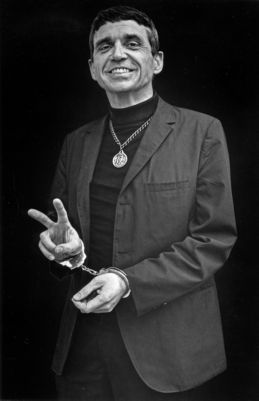
Daniel Berrigan (1921–2016, age 95) was a prominent American Jesuit priest, poet, peace activist, and anti-war advocate, best known for his outspoken opposition to the Vietnam War and his lifelong commitment to social justice causes.
Quick Bio
- Full Name: Daniel Joseph Berrigan
- Born: May 9, 1921, in Virginia, Minnesota
- Died: April 30, 2016, in the Bronx, New York
- Background: Berrigan was raised in a deeply religious Catholic family and went on to become a Jesuit priest. He was known for combining his spiritual vocation with a profound commitment to activism, particularly around issues of peace, justice, and nonviolence.
Activism & Advocacy
Anti-Vietnam War Protests:

- Berrigan became a leading figure in the Catholic left‘s opposition to the Vietnam War. His activism reached its peak in the late 1960s and early 1970s.
- In 1968, he and his brother Philip Berrigan, along with several other activists, engaged in the Catonsville Nine protest. They burned draft files with homemade napalm to protest the war, an act that resulted in their arrest and conviction. This dramatic act was a turning point for Berrigan and brought him to national attention.
- He was later incarcerated for his protests, and his courage and commitment made him a key symbol for the broader anti-war movement.
Nonviolence and Civil Disobedience:
- Berrigan was a strong advocate for nonviolence and civil disobedience, believing that peaceful resistance was the most effective way to challenge injustice.
- He was also involved in campaigns advocating for nuclear disarmament, racial justice, and the rights of the poor. He viewed his faith and his activism as inseparable, deeply rooted in his belief that God’s love for all people demanded resistance to war and oppression.
Writing & Poetry:
- Berrigan was a prolific writer and poet, using his literary talents to communicate his beliefs and experiences.
- His works included both poetry and prose, often reflecting his religious faith and his deep concern for social justice. Some of his notable works include:
- “Time Without Number” (1968): A collection of poems that expressed his anti-war sentiments and personal reflections on peace.
- “To Dwell in Peace” (1973): A collection of prayers and reflections that combined his theological insights with his commitment to social justice.
- His poetry, while not widely known in mainstream literary circles, had a significant following among activists and spiritual communities.
Faith and Spirituality:
- As a Jesuit priest, Berrigan’s faith was central to his activism. He was deeply influenced by Catholic social teaching, especially the call to work for the common good and to stand with the marginalized.
- He often framed his activism within the context of his belief in Christian love and justice, making his actions and writings a fusion of spiritual conviction and political resistance.
Legacy:
- Daniel Berrigan’s work left a lasting legacy in both the Catholic Church and the American peace movement. His courageous stands on moral issues helped shape the political discourse around war, justice, and peace for generations.
- His efforts inspired countless other activists, including those involved in the anti-nuclear and civil rights movements, and his life demonstrated the power of faith-based activism.